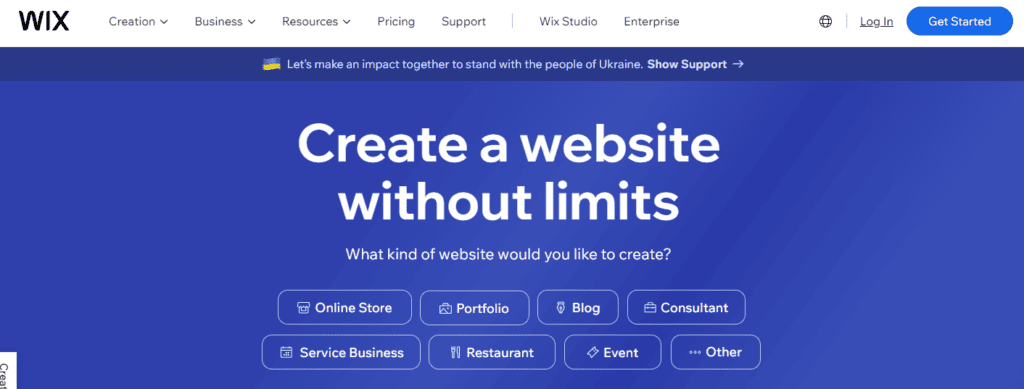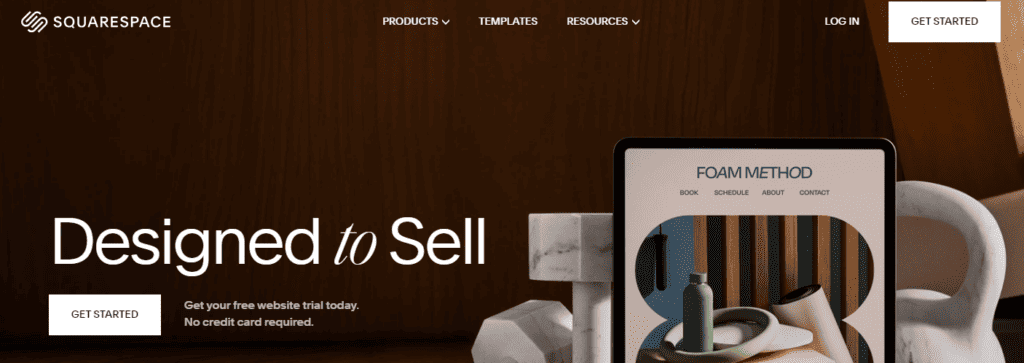
Shopify has become one of the most popular e-commerce platforms available today. With its easy-to-use interface and powerful features, it’s no wonder that so many online businesses are choosing to use Shopify as their go-to platform. In this article, we’ll be taking a closer look at Shopify and providing an in-depth review of its pros, cons, and alternatives.
Whether you’re a small business owner just starting out or a large corporation with hundreds of products, Shopify can accommodate your needs. It offers a wide range of features, including customizable templates, payment processing, and inventory tracking. Additionally, Shopify is incredibly user-friendly, making it easy for even the most technically challenged individuals to set up and operate an online store.
Shopify: Pros and Cons

When it comes to choosing an e-commerce platform, Shopify is a popular option for many businesses. Here are some of the pros and cons of using Shopify:
Pros:
- User-friendly interface: Shopify’s interface is easy to use, even for those who are not tech-savvy. The platform offers a drag-and-drop builder that allows users to customize their online store without the need for coding knowledge.
- Extensive app store: Shopify has a large app store with over 6,000 apps that can be used to enhance the functionality of your online store. From inventory management to marketing automation, there is an app for almost everything.
- 24/7 customer support: Shopify offers 24/7 customer support via phone, email, and live chat. This means that if you run into any issues with your online store, you can get help right away.
- Secure payment processing: Shopify offers secure payment processing through its own payment gateway, Shopify Payments. This means that you don’t have to worry about setting up a separate payment gateway or paying additional fees.
- Mobile responsiveness: Shopify’s themes are mobile responsive, which means that your online store will look great on any device.
Cons:
- Limited customization: While Shopify offers a variety of themes and templates to choose from, customization options are limited. This can be frustrating for businesses that want to create a unique online store.
- Transaction fees: Shopify charges transaction fees for using third-party payment gateways. This can add up over time and eat into your profits.
- App costs: While many apps in the Shopify app store are free, some do come with additional costs. This can add up over time and increase your overall expenses.
Overall, Shopify is a solid choice for businesses looking to create an online store. While there are some drawbacks to using the platform, the benefits outweigh the cons for most businesses.
Shopify Features
As a leading e-commerce platform, Shopify offers a wide range of features to help businesses of all sizes create and manage their online stores. In this section, we will take a closer look at some of the key features that make Shopify stand out from the competition.
Inventory Management
One of the most important features of any e-commerce platform is inventory management. With Shopify, you can easily keep track of your inventory levels, set up automatic alerts when stock is running low, and even manage multiple locations and warehouses. This makes it easy to ensure that you always have the products your customers want in stock and ready to ship.
Point of Sale (PoS)
In addition to its online store capabilities, Shopify also offers a powerful point of sale (PoS) system. This allows you to sell products in person at your brick-and-mortar store, pop-up shop, or trade show booth. With features like barcode scanning, inventory syncing, and customer profiles, the Shopify PoS system makes it easy to manage your sales and inventory across all of your channels.
Email Marketing
Email marketing is a powerful tool for any e-commerce business, and Shopify makes it easy to create and send professional-looking email campaigns. With features like customizable templates, automated workflows, and detailed analytics, you can create targeted campaigns that drive sales and engage your customers.
SEO
Search engine optimization (SEO) is key to driving traffic to your online store, and Shopify offers a range of features to help you optimize your site for search engines. From customizable URLs and meta descriptions to built-in sitemaps and Google Analytics integration, Shopify makes it easy to improve your search engine rankings and attract more customers.
Payment
Finally, Shopify offers a range of payment options to help you streamline your checkout process and increase conversions. With support for over 100 payment gateways, including PayPal, Stripe, and Amazon Pay, you can offer your customers the payment options they prefer and reduce cart abandonment rates.
Overall, Shopify’s robust set of features makes it a top choice for businesses looking to create and manage their online stores. Whether you’re just starting out or looking to scale your business, Shopify has the tools you need to succeed.
Shopify Pricing
When it comes to pricing, Shopify offers a variety of plans to suit different business needs and budgets. Here’s a breakdown of the different plans and their pricing:
- Basic Shopify – This plan costs $29 per month and includes all the basics you need to get started, such as a website, blog, and unlimited products.
- Shopify – At $79 per month, this plan includes additional features like gift cards, professional reports, and abandoned cart recovery.
- Advanced Shopify – This plan costs $299 per month and is designed for businesses with high-volume sales. It includes advanced reporting, third-party calculated shipping rates, and more.
In addition to these plans, Shopify also offers a Shopify Lite plan for $9 per month, which allows you to sell on social media and add a buy button to your website.
It’s important to note that while Shopify’s pricing may seem higher than some of its competitors, it includes features like unlimited products, 24/7 support, and access to Shopify’s app store. Plus, the platform is known for its ease of use and flexibility, making it a popular choice for businesses of all sizes.
Shopify vs Other Competitors
When it comes to e-commerce platforms, Shopify is one of the most popular choices. However, there are other competitors in the market that offer similar services. In this section, we will compare Shopify to two of its main competitors: Wix and Squarespace.
Shopify vs Wix

Wix is a website builder that offers ecommerce functionality. While Wix is a good option for small businesses just starting out, it lacks some of the advanced features that Shopify offers. Here are some key differences between the two platforms:
| Feature | Shopify | Wix |
|---|---|---|
| Pricing | Starts at $29/month | Starts at $23/month |
| Payment Gateways | 100+ | 20 |
| Apps and Integrations | 6,000+ | 250+ |
| SEO | Advanced | Basic |
| Design | Customizable templates | Limited customization |
Overall, Shopify is a better choice for businesses that need more advanced features and scalability.
Shopify vs Squarespace

Squarespace is another website builder that offers ecommerce functionality. Squarespace is known for its beautiful templates, but it lacks some of the advanced features that Shopify offers. Here are some key differences between the two platforms:
| Feature | Shopify | Squarespace |
|---|---|---|
| Pricing | Starts at $29/month | Starts at $26/month |
| Payment Gateways | 100+ | 3 |
| Apps and Integrations | 6,000+ | Limited |
| SEO | Advanced | Basic |
| Design | Customizable templates | Beautiful templates |
While Squarespace is a good option for businesses that prioritize design, Shopify is a better choice for businesses that need more advanced features and scalability.
Conclusion
In conclusion, Shopify is a comprehensive e-commerce platform that provides businesses with everything they need to succeed online. With its local market integration and secure, unmetered hosting, Shopify is the best choice for businesses looking to sell their products and services online.
One of the biggest advantages of Shopify is its user-friendly interface that makes it easy for both professionals and newcomers to the online business world to use. Additionally, Shopify offers a wide range of themes and features that can be customized to suit any business’s needs.
Another advantage of Shopify is its ability to handle a large number of physical products. This makes it an ideal platform for businesses that sell a variety of products, from clothing to electronics to home goods.
Overall, we highly recommend Shopify as the best e-commerce platform for businesses in 2023. Its comprehensive features, user-friendly interface, and transparent pricing make it the ideal choice for businesses looking to sell their products and services online.
Frequently Asked Questions
How much does it cost to use Shopify per month?
Shopify offers a range of pricing plans to fit different business needs and budgets. The Basic Shopify plan starts at $29 per month, while the Shopify plan starts at $79 per month. The Advanced Shopify plan starts at $299 per month. There is also a Shopify Lite plan for $9 per month, which allows you to sell on social media and your own website.
Are there any free apps available for Shopify?
Yes, there are many free apps available for Shopify, as well as paid apps. Some popular free apps include Oberlo, which is used for dropshipping, and Product Reviews, which allows customers to leave reviews on your products.
Can Shopify be used for dropshipping?
Yes, Shopify can be used for dropshipping. There are many apps available on the Shopify app store, such as Oberlo and Spocket, that make it easy to find and add products to your store and fulfill orders.
